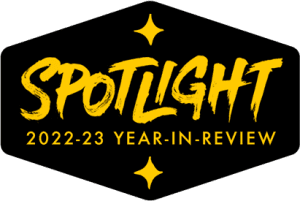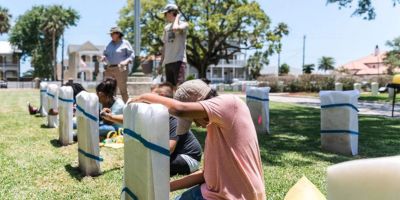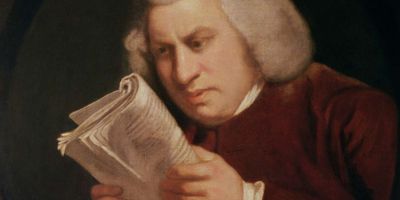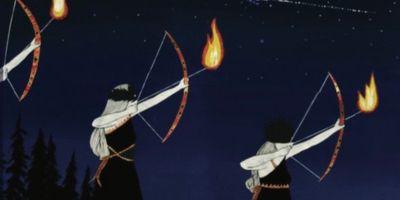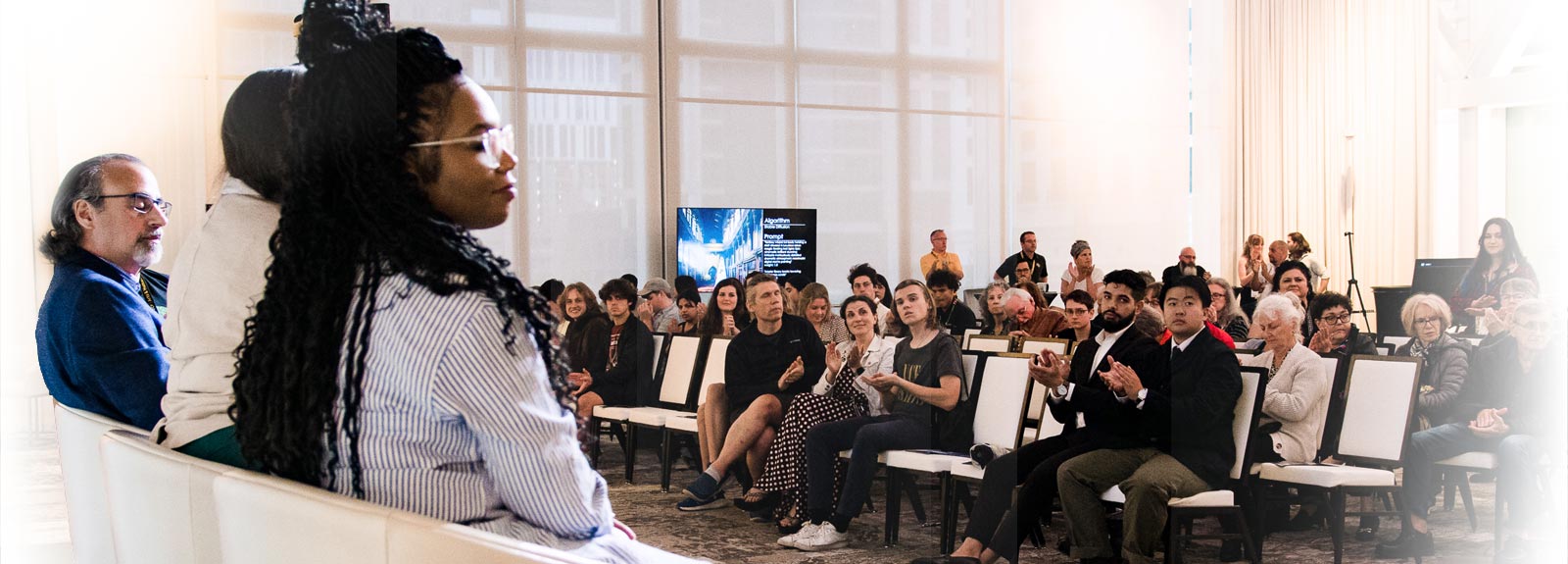
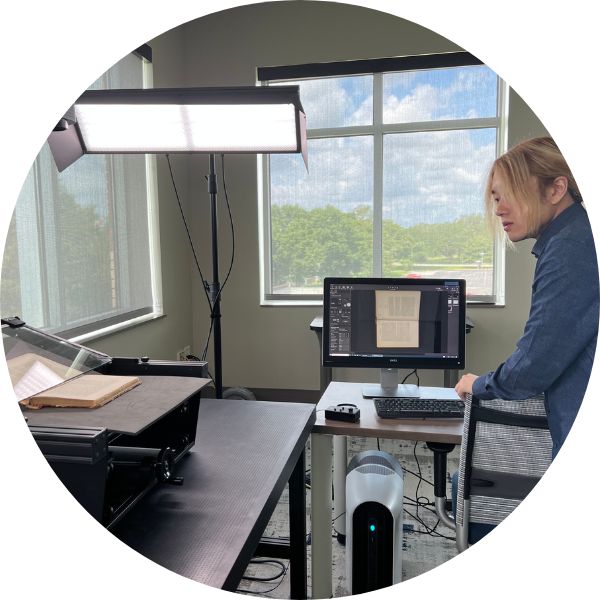
UCF’s Center for Humanities and Digital Research (CHDR) had another landmark year in 2022–2023, presenting groundbreaking research, collaborating with faculty, securing grants and providing educational opportunities for students.
Halfway through the academic year, we finally moved into our new space—Trevor Colbourn Hall 325. The space is large and every day it is filling with new equipment (3D scanners, a SmartBoard, large projector screen, and microfilm scanner so far) with much more to come (a film scanner and a large format scanner with vacuum table, to name a couple). We hosted notable talks and events: a talk on AI by Craig Saper, a research presentation by our own Amy Giroux, sessions for the annual English Symposium and a talk by Andrew Carroll about his American War Letters project ahead of a larger event at UCF Celebrates the Arts. Going forward, we have plans for the space to become a center of presenting and conducting research with a speaker series and other events to bolster our ambitions.
CHDR continued its work on existing projects and welcomed new ones. Amy Giroux continued her work with the Veterans Legacy Program in collaboration with Amelia Lyons and Barbara Gannon of the UCF Department of History, funding an institute through the National Cemetery Administration and providing educational materials for K-12 teachers and students in the process. Giroux also continued her work with the Cheyanne and Arapaho tribes of Oklahoma by participating in tribal events in St. Augustine alongside fellow CHDR researcher Mike Shier and UCF Department of Writing and Rhetoric faculty members Jeremy Carnes and Marcy Galbreath. Our work with the Samuel Johnson’s Dictionary Online project continued for another year, with large portions of the dictionary going online and being noticed as far as the New York Times. This project, spearheaded by Beth Young of the UCF Department of English and with contributions from CHDR’s Amy Giroux, Brook Miller and Connie Harper, remains a cornerstone effort.
Through this academic year of great change, we have continued our mission of supporting faculty research through expertise and grant-seeking and supporting educational opportunities for students.
Brook Miller secured a grant from Florida Humanities to bring historian Andrew Carroll to campus to discuss his American War Letters project and present an in-progress cut of a new documentary, War Unfolding. Mike Shier and Louise Kane of the UCF Department of English brought the James Joyce Literary Supplement to the CAH collection, which is now housed at UCF and published open access through UCF STARS. The first issue has been enjoyed by thousands and there are plans to digitize all previous issues of the journal.
We continue to work with granting organizations, securing support and funding for many projects in collaboration with different faculty members and departments on campus. In the past year, we’ve received funding for sponsored projects from the National Endowment for the Humanities, the National Cemetery Administration and UCF’s own tech fee.
We also welcomed four new graduate research associates in the fall through our partnership with the Texts & Technology PhD program. Over the course of the year, they gained experience in building websites, maintaining databases, coding, video editing, graphic design and archiving. These skills serve to both enhance their education in their degree program and contribute to the range of projects we can work on and support. We are looking forward to our upcoming fall semester with an expanded group of seven graduate research associates who will engage in an array of research projects with CAH faculty.
Through this academic year of great change, we have continued our mission of supporting faculty research through expertise and grant-seeking and supporting educational opportunities for students. We know we will grow even more next year and look forward to you joining us.
— Bruce Janz and Mark Kamrath, co-directors

